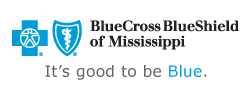
General COVID-19 Guidance
CDC Guidelines for Fully Vaccinated Individuals
If you are fully vaccinated, you can resume many of the activities you did prior to the pandemic. You are considered fully vaccinated two weeks after the second dose of Pfizer or Moderna vaccines or two weeks after your single dose of the Johnson & Johnson vaccine.
To protect against the Delta variant and prevent possibly spreading it to others, the CDC recommends wearing a mask indoors in pubic if you are in an area of substantial or high transmission. Wearing a mask is especially important if you have a weakened immune system or if your age or an underlying medical condition puts you at increased risk for severe disease or if someone in your home is immunocompromised, at increased risk for disease or unvaccinated.
Visit “The Do’s and Don’ts After Getting Fully Vaccinated” for more information.

People with COVID-19 have had a wide range of symptoms reported – ranging from mild symptoms to severe illness. Symptoms may appear 2-14 days after exposure to the virus. People with these symptoms or combinations of symptoms may have COVID-19:
- Fever or chills
- Cough
- Shortness of breath or difficulty breathing
- Fatigue
- Muscle or body aches
- Headache
- New loss of taste or smell
- Sore throat
- Congestion or runny nose
- Nausea or vomiting
- Diarrhea
Until more Mississippians receive the COVID-19 vaccine we will have to continue to be safe, be smart and be healthy. Here are some ways to protect against COVID-19:
- Getting a COVID-19 vaccine when it is available to you. Once you are fully vaccinated, you can start doing some things you stopped doing because of the pandemic. People are considered fully vaccinated:
- 2 weeks after the second dose in a 2-dose series (Pfizer or Moderna).
- 2 weeks after a single-dose vaccine (Johnson & Johnson).
- Wear a mask to protect yourself and others.
- Stay 6 feet away from others.
- Avoid crowds and poorly ventilated spaces.
- Stay in good overall health.
- Wash your hands often. Use an alcohol-based hand sanitizer that contains at least 60% alcohol if soap and water are not available.
- Cover sneezes and coughs.
- Clean and disinfect.
- Monitor your health daily.
Home isolation is mandatory upon first knowledge of infection with COVID-19 by order of the State Health Officer. If you have been in contact with someone who has COVID-19, quarantine is also important to protect others. (source: MSDH COVID-19 Isolation Order)
If you are sick, know or think you may have COVID-19, stay home until:
- At least 10 days have passed since your symptoms began, and
- It has been at least 24 hours since you last had a fever, without using fever-reducing medication such as Tylenol (acetaminophen) or Advil (ibuprofen), and
- Your symptoms have improved.
If you tested positive for COVID-19 but do not have symptoms:
- Stay home until 10 days have passed since your positive test.
Do not go to work or into public until your isolation period ends. Remaining at home is important to prevent transmitting infection to others.
If your symptoms are not severe, it is best to call your Primary Care Provider before you go in. They can tell you what to do and where to go. If you are severely ill and need to go to the clinic or hospital right away, you should still call ahead. This way the staff can care for you while taking steps to protect others.



